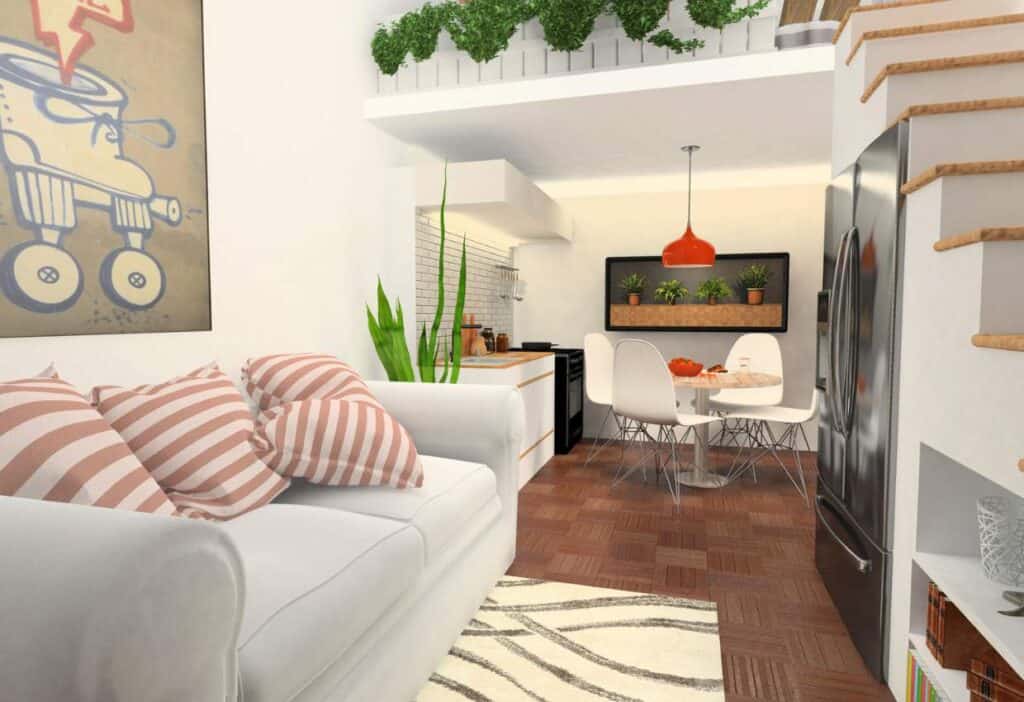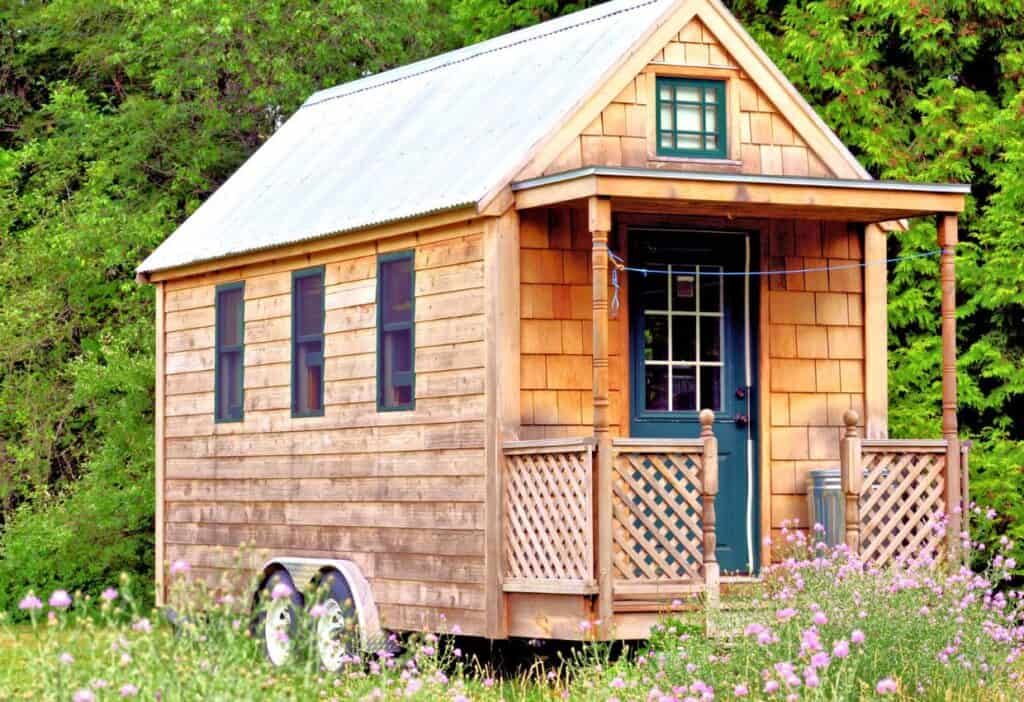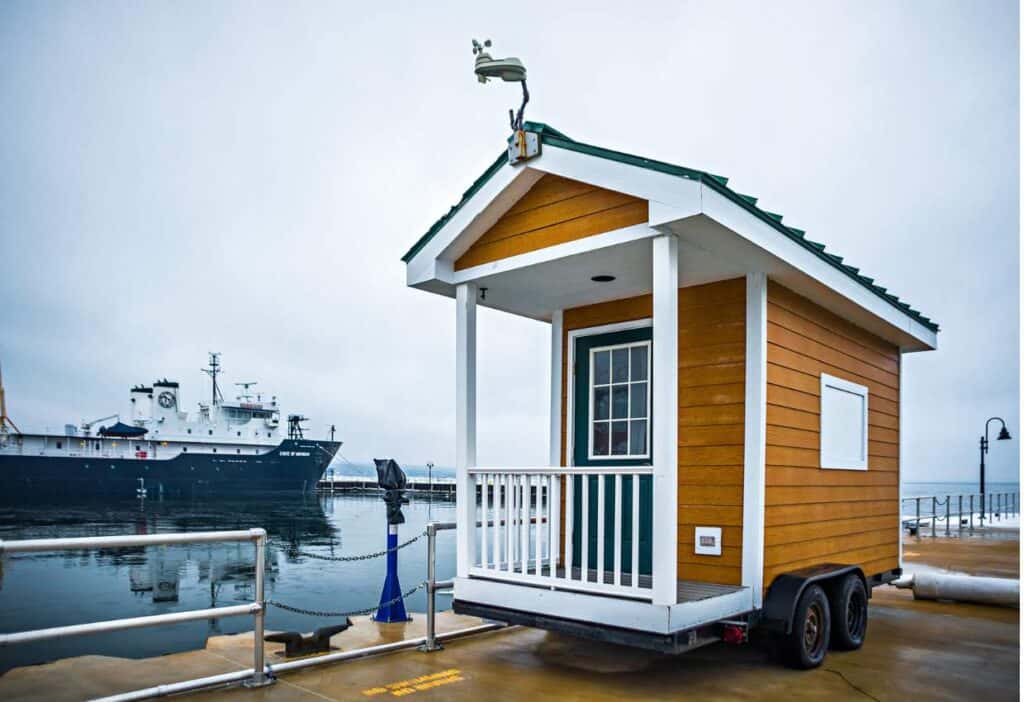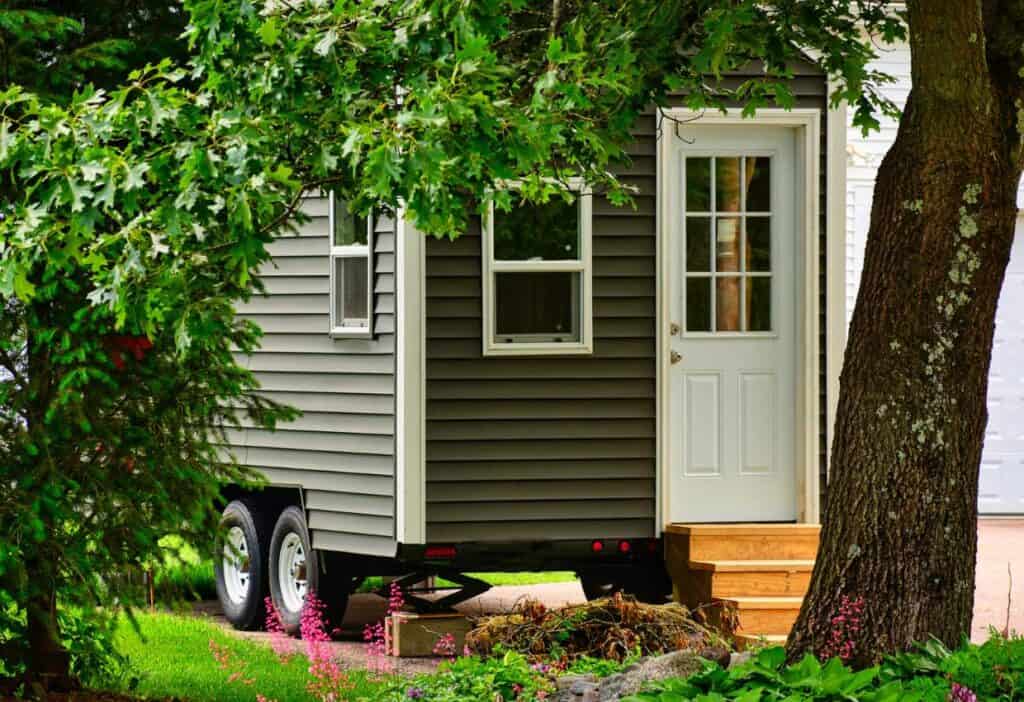Curious about tiny home trailer life? Social media includes many accounts of people living full-time in new or refurbished small homes on wheels. Learn the pros and cons of tiny home life, and discover what to watch out for if you’re considering swapping your current home for a cozy, tiny portable one.

What is a tiny home trailer?
If a nomadic lifestyle appeals to you and you’re willing to give up your spacious home, bath and kitchen with various space-hogging small appliances such as your Ooni pizza oven, a tiny home trailer could be the answer.
Also known as mobile tiny homes, a tiny home trailer is a small home on wheels. While definitions vary slightly depending on the source, a tiny home is usually a single dwelling of less than 400 square feet built on a permanent or movable foundation. By comparison, according to the U.S. Census, a new single-family home sold in the United States in 2022 was 2,383 square feet.
The Tiny Home Movement

Although the idea of living in tiny, portable homes has been around for many years, the current Tiny Home Movement became increasingly popular during the 2007-2008 U.S. recession, possibly in response to affordable housing issues and the quest for a simpler lifestyle.
Tiny home living fans believe it offers affordable home ownership, lower utility costs and better aligns with their minimalist lifestyle goals.
“I’m always fascinated by tiny homes and how they force people to live simply, not to acquire clutter. I have a friend who has just built her own tepee, and she’s living in it full-time — this blows my mind!”
— Mandy Applegate, Splash of Taste
Benefits of living in a tiny home trailer

Some benefits of the tiny home trailer lifestyle include its low cost, simpler lifestyle, the opportunity to live off the grid and flexibility to travel around the country.
Affordability
Building or buying a tiny house appeals to people looking for an affordable home because it generally costs less than purchasing or building a traditional home and comes with lower maintenance and utility costs.
Tiny home trailers include custom-built homes by the homeowner or a private company and refurbished school buses or vans. The most expensive option involves buying a kit from a company specializing in tiny home construction.
Generally, homes built by companies such as Tumbleweed Tiny Homes range in price from $90,959 to $102,959. This does not include the cost of upgrades, a towing vehicle or the purchase or rental of land.
While the tiny home trailer cost-per-square-foot building cost may be higher than traditional homes, the overall cost is still lower than the $540,000 average sale price of a single-family home sold in the United States in 2022.
Minimalist lifestyle
Tiny home living goes hand-in-hand with a minimalist lifestyle because small spaces mean less space for non-essentials.
A Duke University research study found minimalists reported less stress, worried about finances less and felt more happiness. And when you live in a small space with minimal belongings, it’s also easier to clean and declutter than in a larger home.
Mobility as a digital nomad or retiree
If you’re eager to travel without giving up the comforts of home, explore the mobile tiny homes lifestyle. Whether you’re planning to explore national parks near Phoenix or explore the New England states, you’ll enjoy flexibility and freedom to travel the country as a digital nomad or retiree.
The downside of tiny house living

Living in such a small space does come with a few caveats, including the obvious space limitations, sneaky building costs, legal restrictions and potential lifestyle issues.
Limited space
There’s no getting around it; tiny home trailers have limited space for everything. Expect minimal kitchen, bath and laundry facilities and storage. And you might find hosting overnight guests tricky with small sleeping quarters.
Sneaky building costs
Whether you buy a tiny home trailer kit, build your own with upcycled material or upgrade an old trailer, your costs could exceed your budget if you don’t research before starting.
Building your tiny home trailer may require buying:
- A trailer bed with wheels and lumber
- Lumber
- Materials for kitchen and bathroom cabinets, counters and drawer/door knobs or handles
- Kitchen appliances
- Plumbing materials
- Insulation
- Windows, doors and roofing materials
- Solar panels and electrical wiring and material
- Heating or cooling system
Compare the cost of building your tiny trailer and sourcing your own materials before purchasing a kit.
Legal restrictions
You might find challenges with zoning laws and building codes depending on where you park. Some areas only allow homes on wheels in designated camping areas and don’t recognize them as actual homes.
Lifestyle adjustments
Unless you live alone, prepare to give up some of your privacy in your tiny space, especially if you work from home. Your children might need to start homeschooling. You may also need to give up your vegetable garden.
Depending on how well your tiny home trailer can handle temperature extremes, you might need to adopt a nomadic lifestyle and move with the seasons. And you or your spouse may resent the need to get rid of possessions that don’t fit in a tiny home trailer.
Finally, you might experience security and safety concerns when parking a tiny home in a new or remote location.
“Now that my husband and I are empty nesters, the idea of a tiny home is natural. It would save us on maintenance and cleaning costs. The only issue I foresee is where I would house all of the grandchildren I plan on having.”
— Brook M. Burks, The Buttered Home
Research tiny home trailer life before making the leap
A tiny home on wheels may be more affordable than buying a traditional home, encourage a minimalist lifestyle and offer flexibility and freedom for traveling. However, it also means adjusting to limited space, watching out for hidden costs and dealing with potential legal restrictions while making lifestyle adjustments.
Before committing to living in a tiny home trailer, consider your potential location and climate. Imagine the lifestyle adjustments needed. And think about how you will handle your home’s heating, cooling, energy and internet service.
What pros and cons would you add? Let us know in the comments below.
Sarita Harbour is a homeschooling, homesteading mom and a long-time business and finance writer. Sarita created An Off Grid Life to help people become more self-reliant. Sarita and her family live off the grid in Canada’s Northwest Territories.